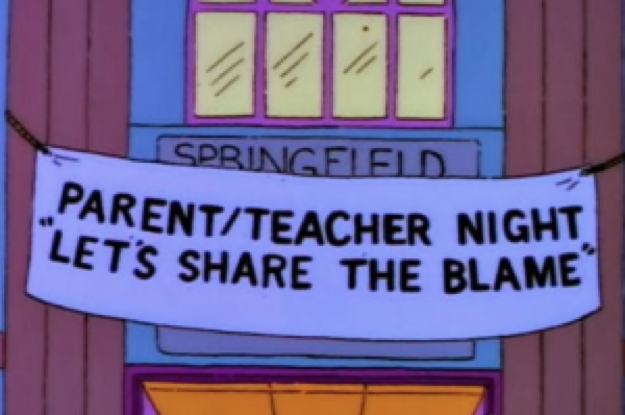By Malaika Gabra, Year 12
According to recent changes in school administration, students are now required (or should at least try) to come to parent teacher conferences. Previously, coming with your parents to the conferences came down to one’s opinion. Many believe that by joining your parents, you will be able to hear, first hand, what the teacher has to say about you, and possibly, defend any criticism. Many who attend parent teacher conferences, come with the ulterior motive that their presence will prevent the teacher from saying anything bad about them to their parents, out of embarrassment of saying it to the student’s face. On the other hand, many students do not attend for the very reason. Some anticipate the criticism, and would rather not be there to hear it, while others embrace it, and really want the teachers honesty.
Although it is not confirmed whether attendance is mandatory, it is probably safe to assume that all students, in a worst (or best?) case scenario, will be expected to come. In that case, there is some work to do from the student’s side. No, it does not involve sucking up to your teachers in an attempt to make them like you before the meeting, but rather some thoughtful reflection. While the meeting is supposed to serve as a kind of verbal report, do not feel intimidated enough to not ask questions. Do you sometimes feel left out in class? Or maybe, you can’t concentrate with the person sitting next you? This is your one window of time that you can also share your opinion with the teacher, and finally have some privacy to ask questions you wouldn’t do alone or in class. If you’re struggling, maybe this is the time to ask for extra support and come up with a plan for the next semester. Whatever it is, remember that as much this meeting is for the teacher, and for your parents, it is also for you. And, as scary as it might seem, if the teacher is saying something you do not agree with, you can politely defend yourself. I in no way condone being rude or obnoxious, but once the teacher has finished speaking you can give (if any) reason to why you, for example, failed your biology test or gave in your homework late. Everybody has bad days and hard times, and teachers *cue gasp,* understand that. They are not there to berate you and belittle you in front of your parents, so if criticism does come your way and you have a valid and reasonable excuse don’t be afraid to share it politely.
In short, take full advantage of your time with your teacher, don’t feel nervous to ask for help, and remember that your voice matters too.



